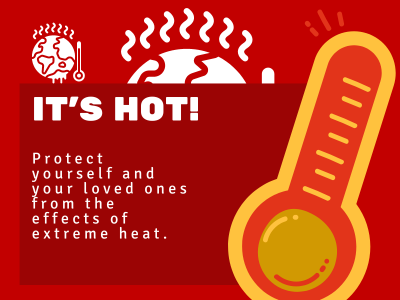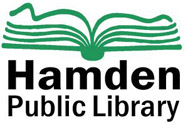
A record-breaking heat wave is spreading across the United States, baking the Northeast and Midwest with high temperatures and sweltering humidity.
Everyone is at risk for heat-related illness as body temperatures rise, experts warn.
Practice Heat Safety
Slow down: Reduce, eliminate or reschedule strenuous activities until the coolest time of the day. Children, seniors and anyone with health concerns should stay in the coolest available place, not
necessarily indoors.
Dress for summer: Wear lightweight, loose-fitting, light-colored clothing to reflect heat.
Eat light: Choose easy-to-digest foods such as fruit or salads. If you pack food, put it in a cooler or carry an ice pack. Meats and dairy products can spoil quickly in hot weather.
Drink plenty of water (not very cold): Focus on non-alcoholic and decaffeinated fluids. Drink water even if you don’t feel thirsty. If you’re on a fluid-restrictive diet or have a problem with
fluid retention, consult a physician before increasing consumption of fluids.
Use air conditioners: Spend time in air-conditioned locations such as malls and libraries if your home isn’t air conditioned. Visit Local Cooling Centers if necessary,
Use portable electric fans: Fans exhaust hot air from rooms or draw in cooler air. Do not direct the flow of portable electric fans toward yourself when room temperatures are hotter than 90°F.
The dry blowing air will dehydrate you faster, endangering your health.
Minimize direct exposure to the sun. Sunburn reduces your body’s ability to dissipate heat. Take a cool bath or shower.
Be aware of infants, older, sick or frail people and pets. Never leave children, disabled adults or pets in a car.
Heat-Related Illnesses
Know the signs of heat-related illnesses and ways to respond. If you are sick and need medical attention, contact your healthcare provider for advice and shelter in place if you can. If you are experiencing a medical emergency call 9-1-1.
HEAT STROKE
Signs:
Extremely high body temperature (above 103 degrees F) taken orally
Red, hot and dry skin with no sweat
Rapid, strong pulse
Dizziness, confusion or unconsciousness
If you suspect heat stroke, call 9-1-1 or get the person to a hospital immediately. Cool down with whatever methods are available until medical help arrives. Do not give the person anything to drink.
HEAT CRAMPS
Signs:
Muscle pains or spasms in the stomach, arms or legs
HEAT EXHAUSTION
Signs:
Heavy sweating, paleness, muscle cramps, tiredness, weakness, fast or weak pulse, dizziness, headache, fainting, nausea, vomiting
If you have signs of heat cramps or heat exhaustion, go to a cooler location and cool down by removing excess clothing and taking sips of sports drinks or water. Call your healthcare provider if symptoms get worse or last more than an hour.
